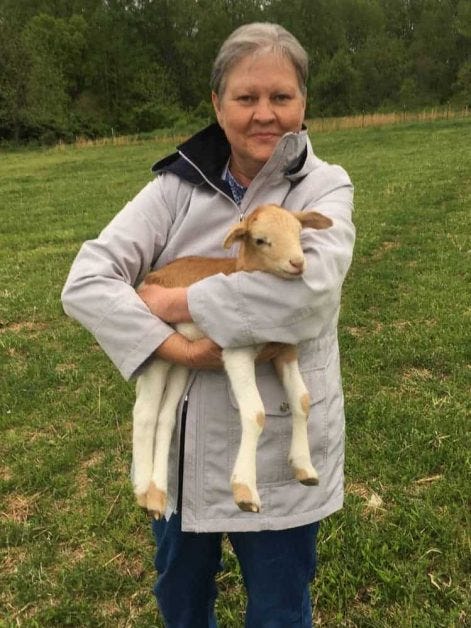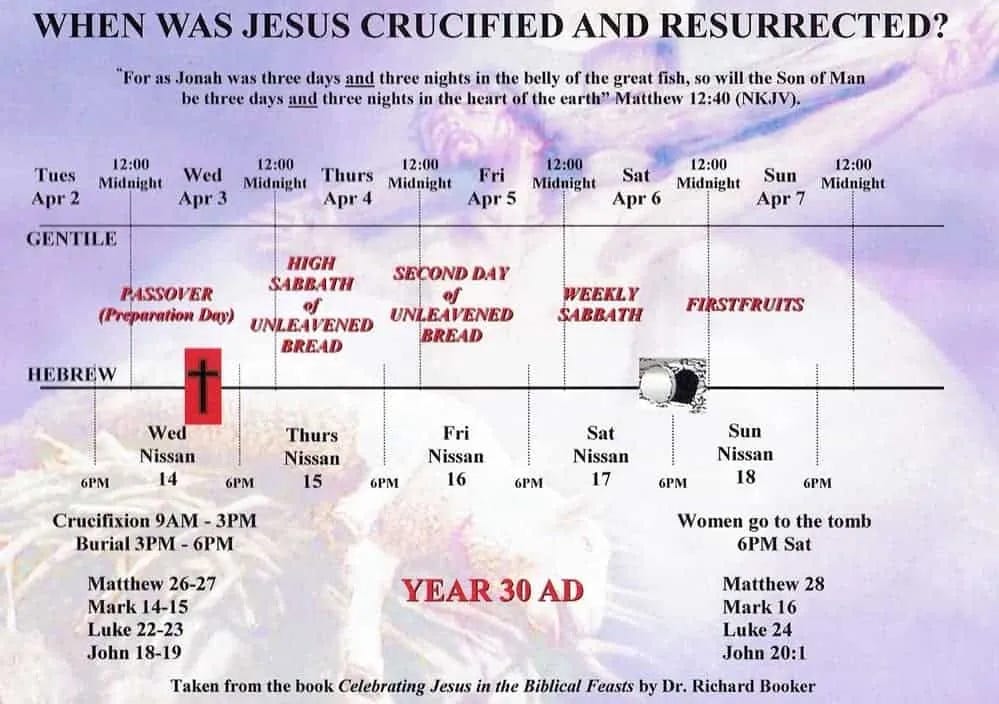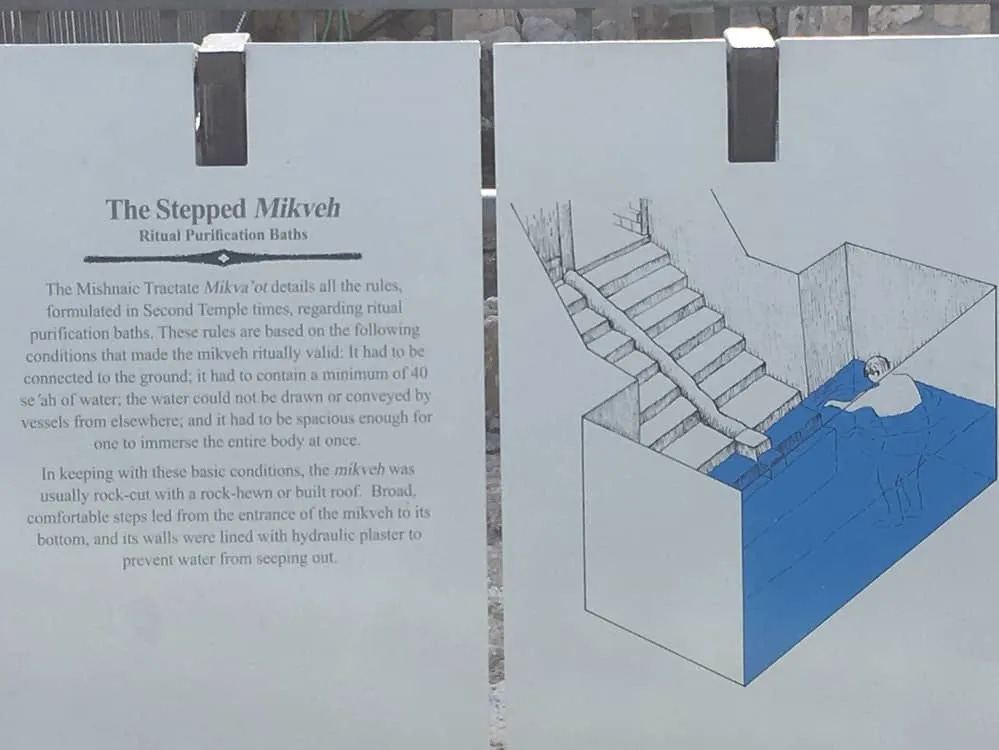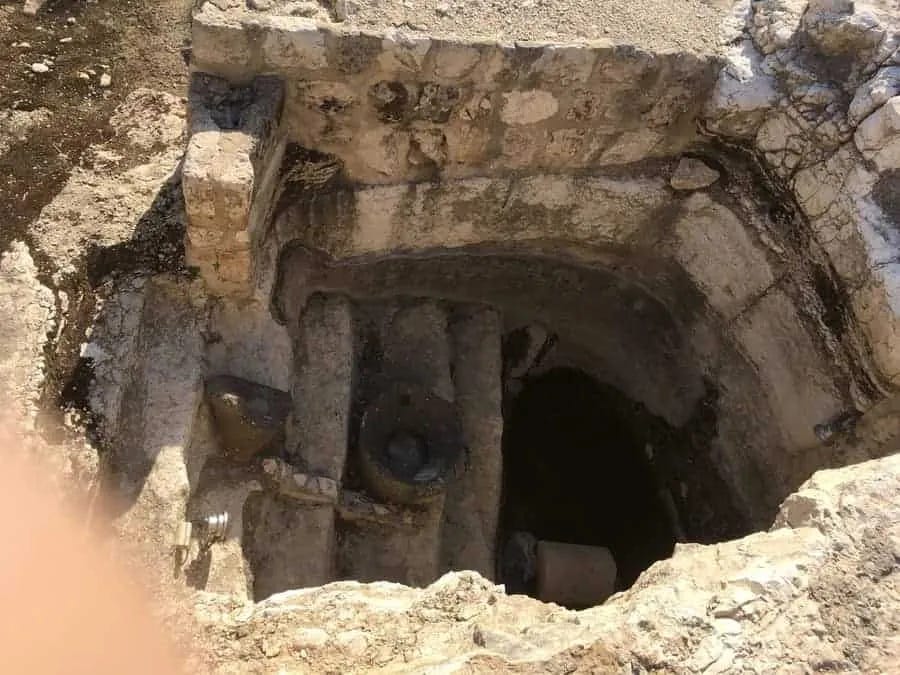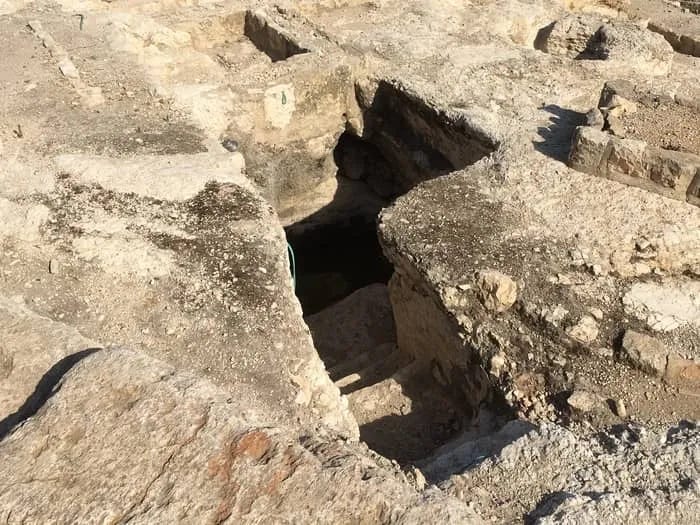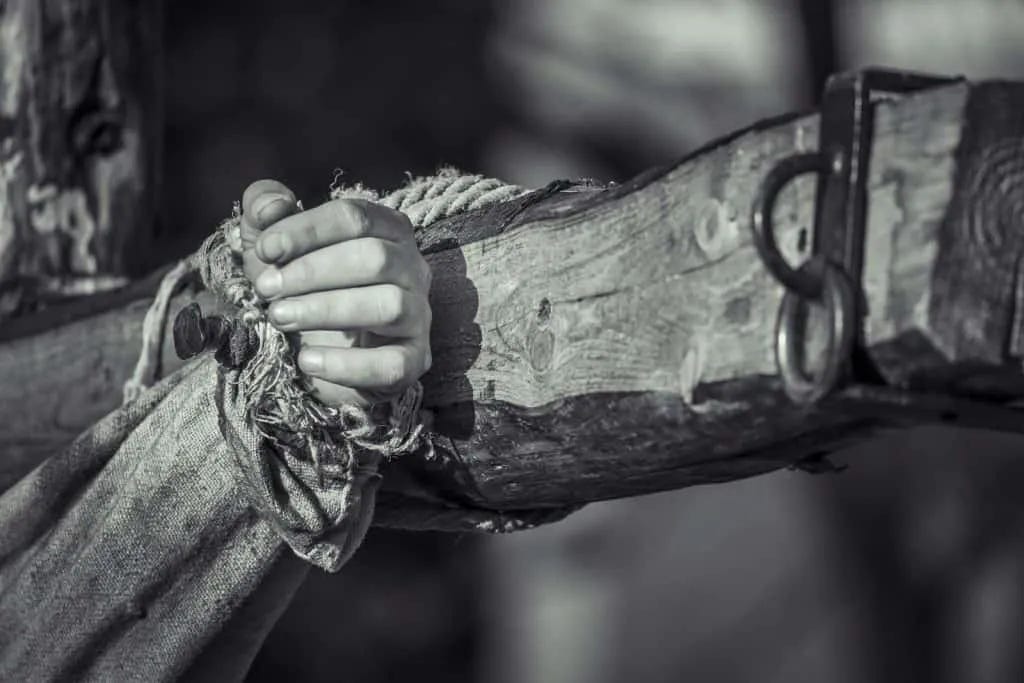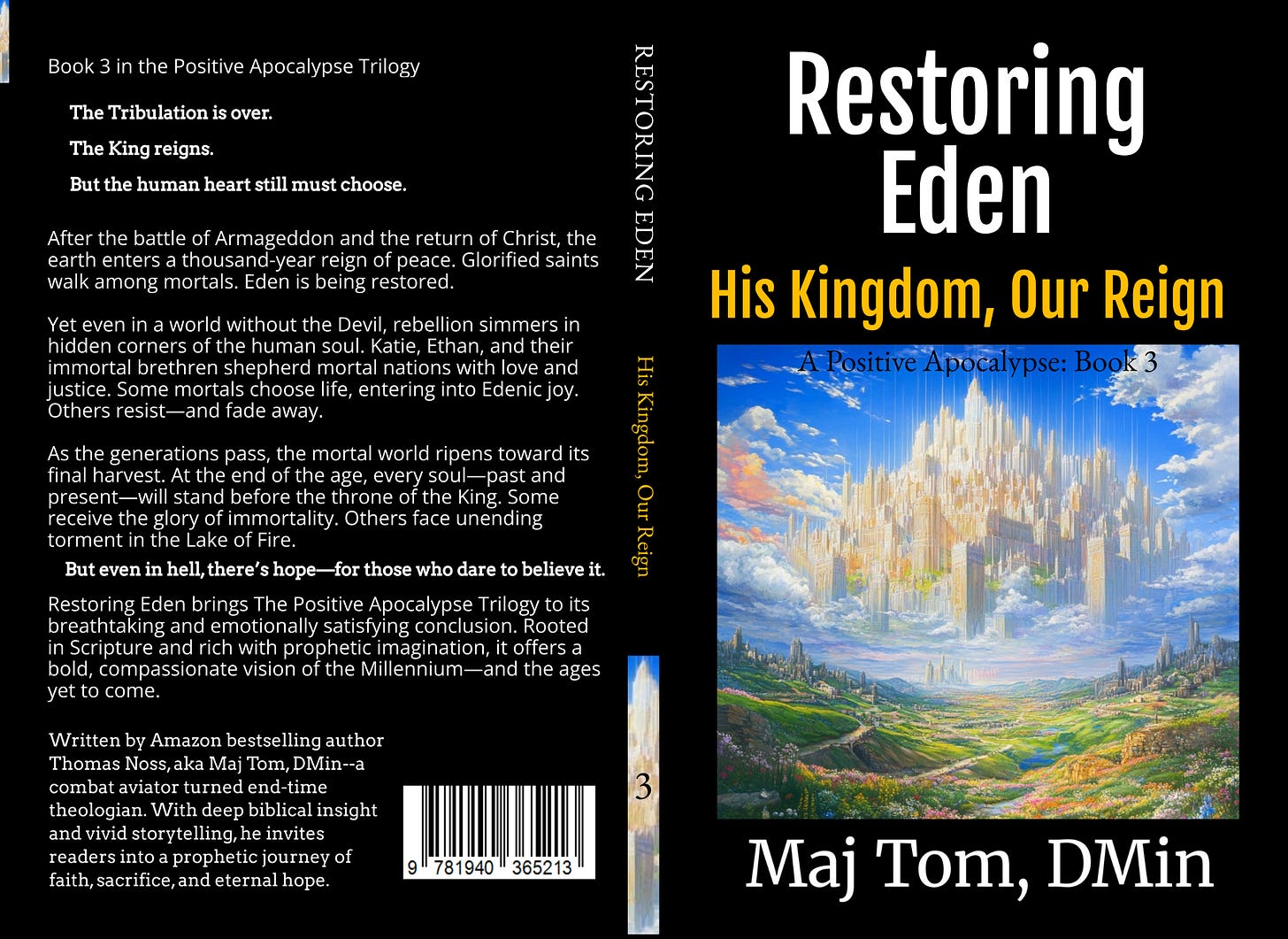Christian Passover
Celebrating the Lamb of God who takes away the sins of the world.
This post includes these two topics:
The significance of Passover for Christians, including:
Proof Jesus was crucified on Wednesday, not Friday
Photos of Jerusalem ritual ‘mikveh’ baths, like Jesus and his disciples used
God’s ‘appointed times’ reveal the sequence and content of his redemptive plan
An update on Restoring Eden: His Kingdom, Our Reign, the 3rd book in my Positive Apocalypse trilogy is now published. This book brings the Positive Apocalypse trilogy to its breathtaking and emotionally satisfying conclusion.
Christian Passover?
Even after being a dedicated Christian for over 45 years, I didn’t understand Passover; and, like most Christians, I believed that Easter replaced Passover. But in the last few years I’ve discovered Passover’s spiritual importance and how Christians should celebrate it.
Most Christians know God fulfilled Passover about 2000 years ago when the Lamb of God voluntarily sacrificed Himself for our sins.
That’s true, but the ongoing, Christian meaning of Passover is that disciples are to follow the Savior’s example, themselves becoming lambs of God, “living sacrifices.”
How? In this article, you’ll learn how Passover symbolically explains events in our past, present, and future:
Past: How Jesus physically fulfilled Passover. This includes how He fulfilled the Feast of Unleavened Bread and Firstfruits, both of which directly result from His sacrifice as our Passover Lamb.
Present: How God calls His disciples to celebrate Christian Passover in their own lives, with purity, obedience, and sacrifice.
Future: Since God fulfilled the Spring feasts (Passover, Unleavened Bread, and Firstfruits) exactly as prophesied, we can expect to likewise fulfill the Autumn feasts in our future.
“Christ, our Passover lamb, has been sacrificed.”
1 Corinthians 5:7
1. Past: How Jesus Fulfilled Passover
Terminology: Jewish Passover vs Christian Passover
Jewish Passover
Since the exodus from Egypt, God commanded Israel to annually celebrate Passover and the Feast of Unleavened Bread.
So, for almost 3500 years, descendants of Israel remember Passover every springtime in a Passover Seder (pronounced say-der), which is a traditional Passover event.
Christian Passover
During the Last Supper, on the evening before His crucifixion, Jesus fulfilled the symbolism of the Jewish Passover and instituted a New Covenant version–a Christian Passover.
Christian Passover builds on the original Passover’s foundation, but it adds much more meaning to it.
Here’s a link to my Christian Passover Seder ‘Haggadah.’
A Haggadah is a Passover program script. This one is 36 pages long.
This Christian Haggadah incorporates much of the traditional Jewish Seder, but it’s updated from a New Covenant perspective, celebrating Jesus as the Lamb of God, and Jesus as the resurrected Afikomen.
For anyone who’d like to lead a Passover Seder in their home or church, here’s a Leader’s version.
When to Celebrate Christian Passover?
This year I’ll be using my Haggadah to lead a Seder in my church at sunset on April 12th, which is the 14th day of Aviv on the modern Hebrew calendar.
Since before the time of Jesus, Jews determine the Passover date according to the monthly cycle of the moon. According to Exodus 12:2, the springtime month of Aviv begins the new year. This month occurs around the time of the sun’s spring equinox, when the barley harvest begins to ripen in Israel.
Aviv 1 begins each Jewish year with a new moon.
Most define ‘new moon’ as when the first sliver of the moon is sighted, not when the moon is fully eclipsed by the earth.
Passover preparation occurs (lambs are killed) on the afternoon of Aviv 14.
The feast of unleavened bread runs 7 days, from Aviv 15-21
A Passover Seder is actually the Feast of Unleavened Bread. This feast is when families ate the roasted Passover Lamb, just after sunset, a few hours after the lamb was sacrificed.
Aviv 15 and 21 are both ‘High Sabbath’ days
From Sunset to Sunset
Ever since the first day of creation in Genesis chapter one, days in the Bible go from sunset to sunset—not from midnight to midnight as we’re accustomed.
So, according to this Hebrew concept of when a day begins, when the sun sets a few hours after the Passover lamb is sacrificed, the next day begins. So, if the lamb was sacrificed at about 3pm on Aviv 14, the next day (Aviv 15) would begin a few hours later, at sunset.
God’s Appointed Times
The Seven Moedim (Appointed Times)
In the Bible (Leviticus 23) YHWH ordained seven ‘moedim’ for His people. YHWH’s appointed times, or ‘moedim’ (pronounced moe-a-deem) are sacred assemblies (Leviticus 23:2).
The Messiah’s First Coming
The four Spring moedim teach us about God’s plan for redeeming mankind from sin and death through the Messiah.
Christian Passover is a spring moedim; we celebrate it to remember (and personally identify with) Jesus’ sacrifice as the Lamb of God. The Spring moedim are:
The Messiah’s Second Coming
The three Autumn moedim promise how YHWH will resurrect His saints and establish the Messiah’s kingdom on the earth.
The Seven Moedim
Here are the 4 Spring and 3 Autumn moedim:
Passover
Unleavened Bread
Firstfruits
Pentecost
Trumpets
Atonement
Tabernacles
God fulfilled the Spring moedim in the past; He will fulfill the Fall (Autumn) moedim in our future.
The Lunar Month of Aviv
Passover is in the lunar month of Aviv, which (according to Exodus 12:2) is the first month in the Hebrew calendar. Aviv always coincides with March/April.
Note: Aviv is the original Hebrew name for this month. During their Babylonian captivity the Jews also adopted the name Nissan (or Nisan) for this month.
The first day of each Hebrew month starts at sunset when Israel sights the first sliver of the new moon.
Or, a minority believe the new moon is ‘at conjunction,’ when the moon is completely dark–the Bible doesn’t define which is correct.
Then, two weeks later, the full moon is on the 15th of each month. This is the evening when Jews eat the Passover lamb. So, the Feast of Unleavened Bread is eaten when the moon is full.
Passover on Aviv 14
From the following verses we learn Passover occurs ‘between the sunsets’ on Aviv 14. The Feast of Unleavened Bread follows immediately afterward, for the next 7 days, from Aviv 15-21:
These are the LORD’s appointed feasts, the sacred assemblies you shall proclaim at their appointed times. The Passover to the LORD begins between the sunsets on the fourteenth day of the first month. On the fifteenth day of the same month begins the Feast of Unleavened Bread to the LORD. For seven days you must eat unleavened bread.
Leviticus 23:4-6
Every year, the Jewish Passover Day (Aviv 14) is when the lambs are killed. But, it is not a Sabbath Day.
Rather, Aviv 14 is a preparation day, to prepare the lamb (and vegetables, etc.) for the Passover ‘Feast of Unleavened Bread.’ This feast begins after sunset, and it is a ‘high Sabbath’ that begins on Aviv 15.
Events on Christian Passover Day – Aviv 14, from Sunset to Sunset
This is a brief, chronological summary of events that happened on Aviv 14, Christian Passover Day, in the year Jesus died on the cross.
Contrary to centuries of church tradition, Jesus died on the cross on Wednesday at about 3 pm. This was exactly the same time as the Levitical priests in the temple were killing the Passover lambs to cover the nation’s sins.
Just after sunset on that Wednesday, all families in Israel would be eating roasted lamb in Passover Seder meals. In the image below, this is the “High Sabbath of Unleavened Bread” that begins after 6pm on Wednesday.
The “sign of Jonah” must be fulfilled.
Jesus and His disciples met for the Last Supper at the beginning of Aviv 14, just after sunset on Tuesday.
After the Last Supper, Jesus and His disciples went to the Garden of Gethsemane to pray. Judas led a mob there to arrest Jesus.
Pontius Pilate convicted and condemned Jesus to be crucified early on Wednesday morning.
By 9 AM Jesus was crucified. At about 3 pm (still on Aviv 14) He died on the cross.
His disciples hastily laid His body in a nearby tomb before Aviv 14 ended at sunset. This was before the Feast of Unleavened Bread began at sunset, the beginning of Aviv 15. (John 19:31, 42)
Jesus was resurrected after 6pm Saturday evening, which started Aviv/Nissan 18, fulfilling the Day of Firstfruits (Lev 23:10-14).
The Last Supper
Jesus and the 12 disciples met in an upper room for what Jesus knew was His last meal. During this meal, He emphasized to them (and demonstrated) the Christian Passover concepts of purity, obedience, and sacrifice.
Purity: Mikveh and Foot-Washing
Before entering the sacred temple area for Passover, Jews ritually purified themselves by immersion in a mikveh, a ritual bath. Archaeologists discovered hundreds of mikvehs around Jerusalem for this purpose.
I took the following photos in Jerusalem.
Whoever has already bathed needs only to wash his feet, and he will be completely clean. And you are clean, though not all of you.
John 13:10
From this verse we know Jesus and His disciples bathed to cleanse their bodies before walking to the upper room for the Last Supper. They used a mikveh.
Obedience:
Jesus didn’t want to die on the cross. Even so, knowing He was going to be crucified as the Lamb of God within just a few hours, Jesus said,
I do exactly what the Father has commanded Me, so that the world may know that I love the Father.
John 14:31
Sacrifice: Bread and Wine
At the Last Supper, Jesus used leavened bread (artos, Strong’s #740) and wine to symbolize His body and blood.
The Melchizedek Priesthood
The symbol of bread and wine wasn’t new in Hebrew history.
In the book of Genesis, Melchizedek was king of Salem and priest of God Most High. He ‘brought out bread and wine’ when he blessed Abraham in Genesis 14:19.
According to Hebrews 5:10, 6:20, and 7:1-28, Jesus is our High Priest ‘according to the Order of Melchizedek.’
So, what did it mean when Jesus ‘brought out bread and wine,’ and how does it relate to Christian Passover? Months before, in Galilee, Jesus told His followers:
I AM the Living Bread of Life
Truly, truly, I tell you, he who believes has eternal life. I am the bread of life. Your fathers ate the manna in the wilderness, yet they died. This is the bread that comes down from heaven, so that anyone may eat of it and not die. I am the living bread that came down from heaven. If anyone eats of this bread, he will live forever. And this bread, which I will give for the life of the world, is My flesh.”
“Unless you eat My flesh and drink My blood you have no life in you…”
Whoever eats My flesh and drinks My blood has eternal life, and I will raise him up at the last day. For My flesh is real food, and My blood is real drink.
Whoever eats My flesh and drinks My blood remains in Me, and I in him. Just as the living Father sent Me and I live because of the Father, so also the one who feeds on Me will live because of Me. This is the bread that came down from heaven. Unlike your fathers, who ate the manna and died, the one who eats this bread will live forever.”
Aware that His disciples were grumbling about this teaching, Jesus asked them, “Does this offend you? Then what will happen if you see the Son of Man ascend to where He was before? The Spirit gives life; the flesh profits nothing. The words I have spoken to you are spirit and they are life. However, there are some of you who do not believe.
John 6:53-63
So, what did it mean when Jesus ‘brought out bread and wine,’ and how does it relate to Christian Passover?
The bread and wine in the Last Supper were elements of an ancient blood covenant ritual. It is a ‘New Covenant in His blood.’
The New Covenant
Behold, the days are coming, declares the LORD, when I will make a new covenant with the house of Israel and with the house of Judah. It will not be like the covenant I made with their fathers when I took them by the hand to lead them out of the land of Egypt—a covenant they broke, though I was a husband to them, declares the LORD.
But this is the covenant I will make with the house of Israel after those days, declares the LORD. I will put My law in their minds and inscribe it on their hearts. And I will be their God, and they will be My people.
No longer will each man teach his neighbor or his brother, saying, ‘Know the LORD,’ because they will all know Me, from the least of them to the greatest, declares the LORD.
For I will forgive their iniquities and will remember their sins no more.
Jeremiah 31:31-34
Who Are the Parties Making the New Covenant?
Who did YHWH covenant with in the New Covenant? Contrary to popular opinion, the Church didn’t replace Israel as God’s chosen people when Jesus instituted the New Covenant.
According to Jeremiah 31:31 above, the New Covenant is between YHWH and the houses of Israel and Judah.
Spiritual Israel
New Covenant disciples are citizens of spiritual Israel, and Jesus is now God’s High Priest according to the order of Melchizedek.
He mediated the New Covenant between YHWH and the houses of Israel (10 tribes) and Judah (2 tribes).
The apostle Paul revealed that Gentile believers are reconciled to God because they’re grafted-in to (spiritual) Israel.
At the Last Supper, Jesus revealed that His body and blood would be sacrificed to ratify the New Covenant God promised through his prophets. (e.g., Jeremiah 31:31-34)
While they were eating, Jesus took bread, spoke a blessing and broke it, and gave it to the disciples, saying, “Take and eat; this is My body.”
Then He took the cup, gave thanks, and gave it to them, saying, “Drink from it, all of you. This is My blood of the covenant, which is poured out for many for the forgiveness of sins. (Matthew 26:26-28)
This is the Christian Passover ceremony.
The New Covenant Is A Blood Covenant
Bread and wine are ‘blood covenant‘ symbols. In ancient times, whenever two men made a formal covenant, they sacrificed an animal. They spilled its blood (its life) and then roasted and ate its body in a covenant meal. Eating this meal constitutes an unspoken agreement that whoever breaks the covenant will be cursed to die, just as the sacrificed animal died.
In like manner, when we eat the Christian Passover bread and drink the Christian Passover wine, in the Feast of Unleavened Bread, we’re symbolically eating the body and drinking the blood of the Christian Passover sacrifice, the Lamb of God.
When you eat the bread and drink the wine in the Christian Passover ceremony you are literally entering into a covenant with YHWH.
That’s why the apostle Paul warned:
Therefore, whoever eats the bread or drinks the cup of the Lord in an unworthy manner will be guilty of sinning against the body and blood of the Lord. Each one must examine himself before he eats of the bread and drinks of the cup. For anyone who eats and drinks without recognizing the body eats and drinks judgment on himself. That is why many among you are weak and sick, and a number of you have fallen asleep.
1 Corinthians 11:27-30
Our Responsibility In the New Covenant:
Believe in the Messiah as our Christian Passover sacrifice
Have God’s law written in our mind and on our heart (and walk accordingly)
Know YHWH.
YHWH’s Responsibility In the New Covenant:
Reconcile believers to Himself—both Jew and Gentile. Reconciliation is available to anyone who believes. Belief in YHWH’s Christian Passover sacrifice is the only method of reconciliation with YHWH. (John 14:6, Acts 4:12)
Replace believers’ hearts of stone and give them a heart of flesh. Make it possible for them to grow in holiness.
YHWH now inhabits a spiritual house made from ‘living stones,’ making all stone temples obsolete.
As you come to Him, the living stone, rejected by men but chosen and precious in God’s sight, you also, like living stones, are built into a spiritual house to be a holy priesthood, offering spiritual sacrifices acceptable to God through Jesus Christ.
1 Peter 2:5
Arrest, Trial, Crucifixion, Burial
The themes of purity, obedience, and sacrifice continue:
Purity
For you know that it was not with perishable things such as silver or gold that you were redeemed from the empty way of life you inherited from your forefathers, but with the precious blood of Christ, a lamb without blemish or spot.
1 Peter 1:19
Obedience
“Not My will, but Thine be done.”
Luke 22:42
In His anguish, He prayed more earnestly, and His sweat became like drops of blood falling to the ground.
Luke 22:44
He humbled Himself and became obedient to death—even death on a cross.
Philippians 2:8
Regardless of the cost and pain, Jesus completely obeyed the Father and submitted Himself to the Father’s will.
Sacrifice
He was oppressed and afflicted, yet He did not open His mouth. He was led like a lamb to the slaughter, and as a sheep before her shearers is silent, so He did not open His mouth.
Isaiah 53:7
Feast of Unleavened Bread, from Aviv 15-21
The Feast of Unleavened Bread is the actual Passover meal, when we eat the roasted, sacrificial lamb.
Christian Passover – Conclusion
Most Christians know Passover was fulfilled about 2000 years ago when Jesus—the Lamb of God—voluntarily sacrificed Himself for our sins. That’s true, but the ongoing, New Covenant meaning of Christian Passover is that disciples should not only partake of the bread and wine, but they should themselves follow the Savior’s example, becoming lambs of God, “living sacrifices.”
They can do this by:
Purity: partake of the bread and wine of the Christian Passover sacrifice by faith, and then mikveh (wash, cleanse) your mind and conscience through introspection and prayer. Do this until you can stand before God without any shame or guilt.
Obedience: don’t let any leaven (sin) defile you. Be holy, as YHWH is holy (1 Peter 1:16). Be sure to mix holiness with genuine humility; remember, pride is a sin.
Sacrifice: having cleansed your conscience by faith in the Christian Passover Lamb, and having put away all leaven in your life, offer yourself as a living sacrifice, holy and pleasing to God. God will mightily use you to advance His kingdom on the earth.
Related Questions and Answers
Q: Should Christians celebrate Old Testament festivals?
A: Yes. The New Covenant is between YHWH and Israel–sealed by the blood of Jesus. Jesus fulfilled the Spring festivals exactly according to their dates and prophetic patterns and He will likewise fulfill the autumn festivals in our future. God gave the annual festivals in Leviticus 23 to His people so that we’d understand God’s plan of redemption, and He commanded His people to keep these festivals. Christians are grafted into Israel (Romans 11:17-24), so let’s keep the Biblical festivals, not blindly and mechanically according to their letter, but intelligently, according to God’s spiritual intent, as I’ve illustrated in this article about how to spiritually observe Passover and the Spring feasts.
Q: This article doesn’t jive with the church’s Good Friday and Easter holidays. Why not?
A: Good Friday, Easter, Ash Wednesday, Lent, Easter, and all other ‘church’ holidays are both absent from and contrary to scripture. For any objective person, it’s easy to trace their evolution from Babylonian roots. Though many of these holidays seem harmless, and even reverent, they illegitimately substitute themselves for the truths that YHWH’s moedim provide. Thus, they deprive you of the moedims’ revelation and truth, and they deprive YHWH of the form of worship He commanded us to present to Him.
YHWH designed His moedim to teach you His plan of redemption, including how and when events will unfold in our future. Just as Jesus fulfilled the Spring feasts, so will He fulfill the Autumn feasts.
Therefore, instead of following the world in celebrating other traditions, Christians should follow YHWH’s appointed times (holidays) found in Leviticus chapter 23.
An update on Restoring Eden: His Kingdom, Our Reign
The 3rd book in my Positive Apocalypse trilogy is now published. Yay!
As the book cover says, this book brings the Positive Apocalypse trilogy to its breathtaking and emotionally satisfying conclusion.
The trilogy has taken over a year of my full-time effort, and I’m proud of it.
The Paperback version of Restoring Eden is now available for $9.99.
The Kindle version of Restoring Eden is available today for pre-order at $0.99, and Amazon will electronically begin releasing it tomorrow, April 5th. I’ll leave the price at 99 cents until Wednesday, April 9, so you (my newsletter subscribers) can snatch-up a discounted copy. I’ll wait until 4/10 before I raise the price to $4.99.
Here’s a link to the trilogy page if you want to see all three books.
By the end of 2025 I plan to create a trilogy paperback box set, a (600-page?) hardcover version that includes all three books, audible book versions, and foreign translations.
Do you have a preference which project I should do next? Let me know.


